Creating Counselor Troi

The character of Deanna Troi, and her relationship with the ship’s first officer, Will Riker, was modeled on Lieutenant Ilia. The bald Deltan had been intended as a permanent addition to the Enterprise crew in Star Trek: Phase II but appeared only once, when that series was turned into The Motion Picture. (See Creating Lieutenant Ilia.)
Like Ilia, Troi is an empath. Like the Deltan, she hails from an alien world with liberal attitudes to sexual relations.
The last part came later. Denise Crosby, who ended up playing security chief Natasha Yar, told Entertainment Weekly in 2007 that, originally, “Troi was this cool, Icelandic blonde. Almost Spock-like.” Marina Sirtis was reading for the role. Crosby was auditioning for Troi.
Somewhere, about the second or third audition, Gene Roddenberry had this idea: Let’s just switch them and see what happens.
Tasha, who was written as a Latina, became Caucasian. Troi became first quarter- and later half-Betazoid.
Makeup and accent
There was a suggestion to give Troi three breasts, but Dorothy C. Fontana, a veteran of the original Star Trek series and once again the only female writer on the show, objected:
I felt women have enough trouble with two. And how are you going to line them up? Vertically, horizontally, or what? I was like, please, don’t go there. And they didn’t, fortunately.
To make the Betazoid Troi exotic, Sirtis wore black contact lenses and a hairpiece. She also spoke with an accent.
Sirtis, who was born in England to Greek parents, is quoted in James Van Hise’s Trek: The Next Generation as saying,
I didn’t want anyone to pin down my accent to any particular country.
In a commentary for the 2002 DVD release of Season 1, she elaborated:
It was an Eastern European accent, which kind of started with the Tasha Yar auditions, ’cause she was supposed to be from Eastern Europe. Then, when they told me to make an accent up, from Betazed, I kind of just modified that Eastern Europe accent a bit. I based it on a friend of mine, who’s actually Isreali.
The accent would wane over time to the point where Troi sounded American in the movies.






Costumes
Troi wore a “skant” (unisex skirt) in the pilot, “Encounter at Farpoint”. It would be years before she appeared in uniform again.
Sirtis told Starlog in 1988 that, after the first episode,
the producers decided that the look didn’t suit the character the way she was originally envisioned. They wanted something a bit more elegant and contained.
The actress was given various dresses to wear, a new one every season.
The downside, Sirtis lamented, was that the more cleavage her costumes revealed, the less cerebral her character seemed to become.
When Captain Jellico (Ronny Cox) told Troi to put on a uniform in Season 6’s “Chain of Command”, Sirtis was thrilled, telling the BBC:
First of all, it covered up my cleavage and, consequently, I got all my brains back, because when you have a cleavage you can’t have brains in Hollywood. So I got all my brains back and I was allowed to do things that I hadn’t been allowed to do for five or six years. I went on away teams, I was in charge of staff, I had my pips back, I had phasers, I had all the equipment again, and it was fabulous.
Sirtis’ Season 7 publicity photo is the only one in which she appears in Starfleet uniform.
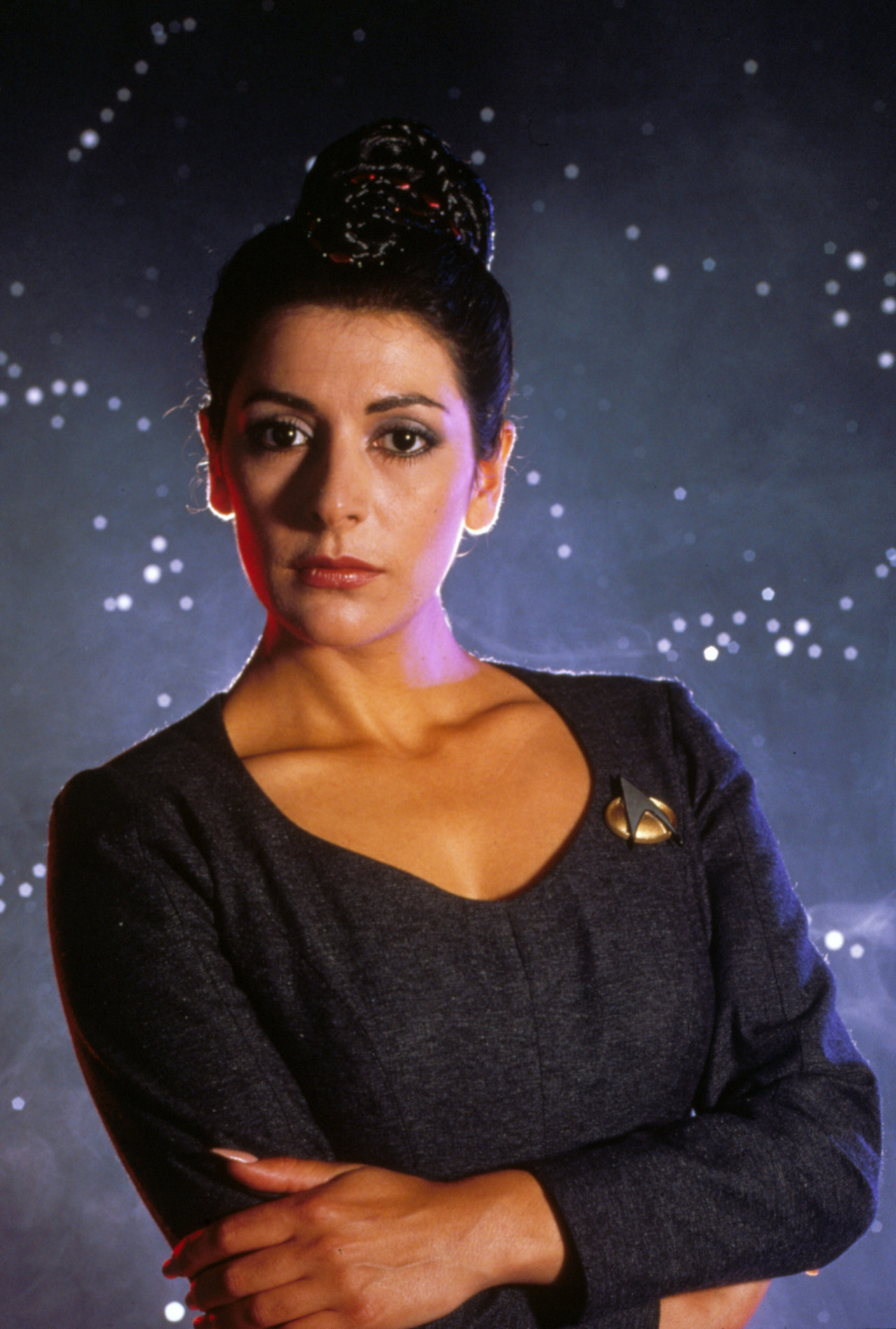
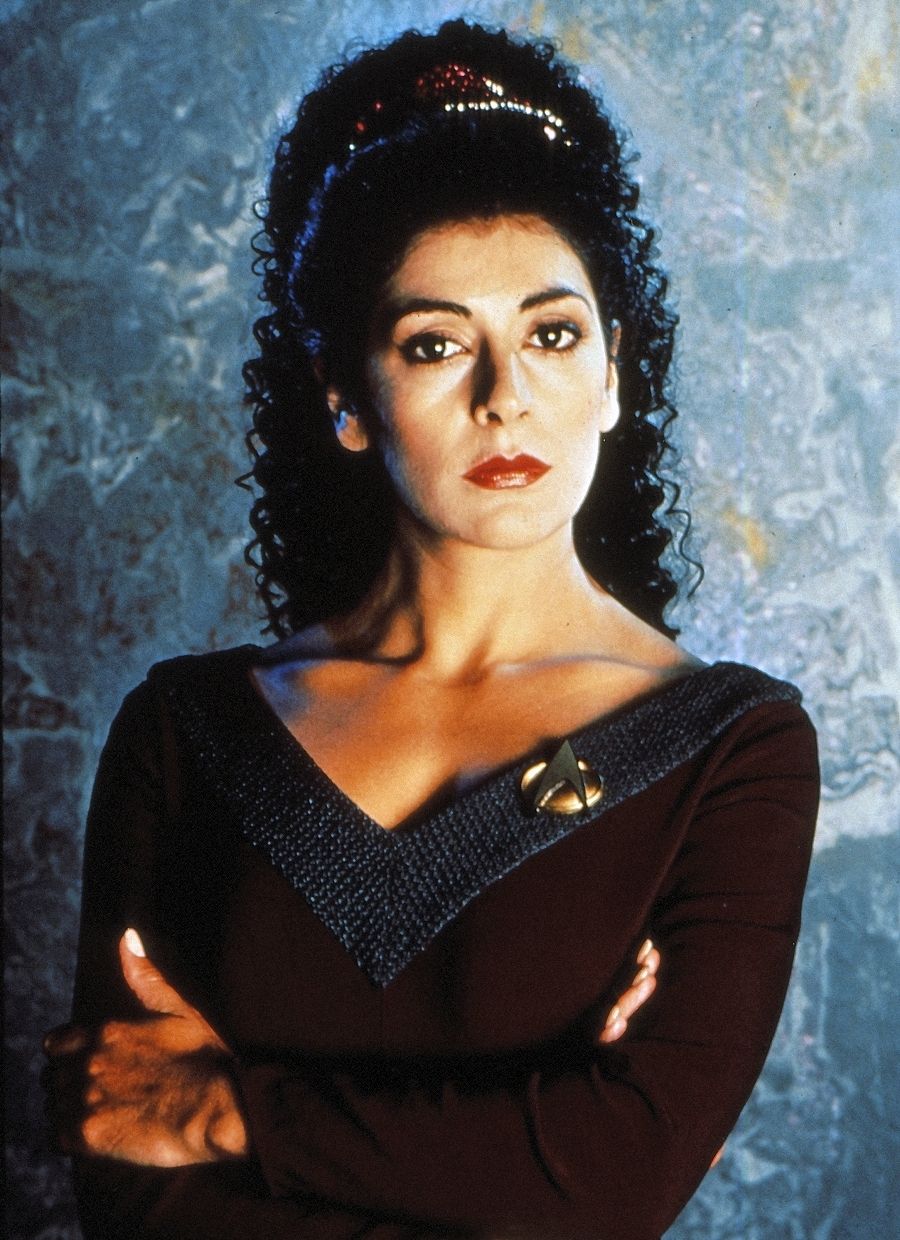
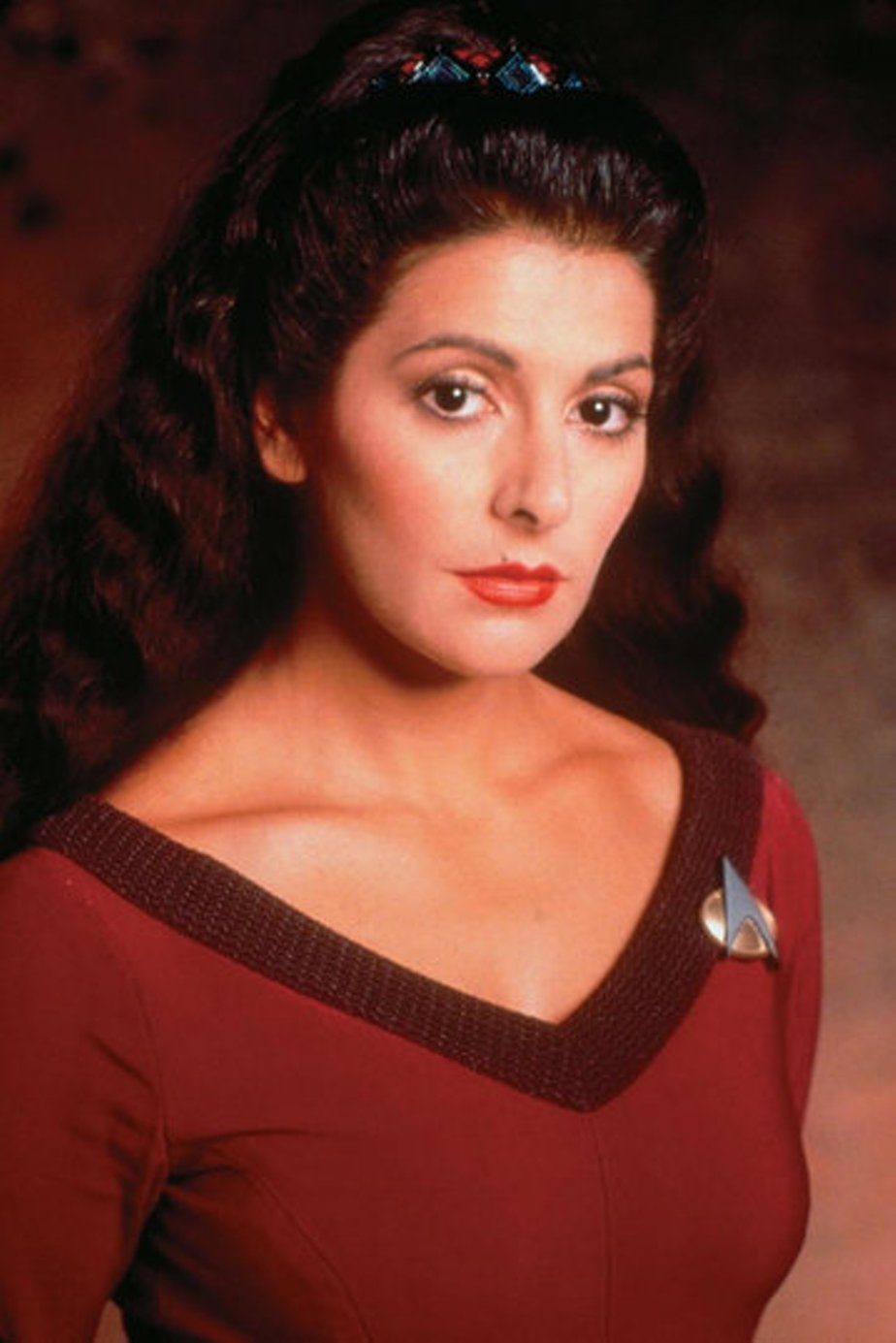
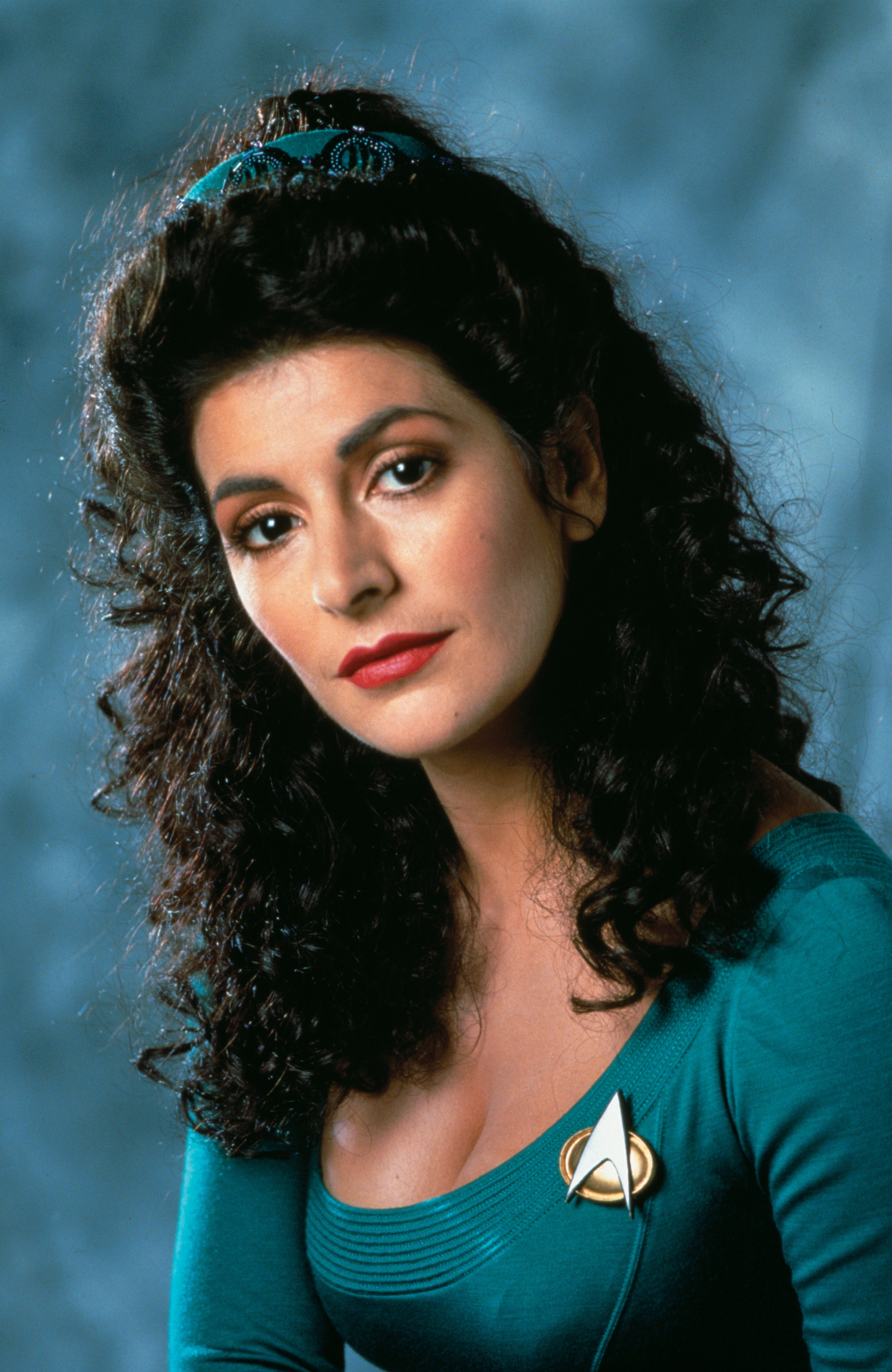
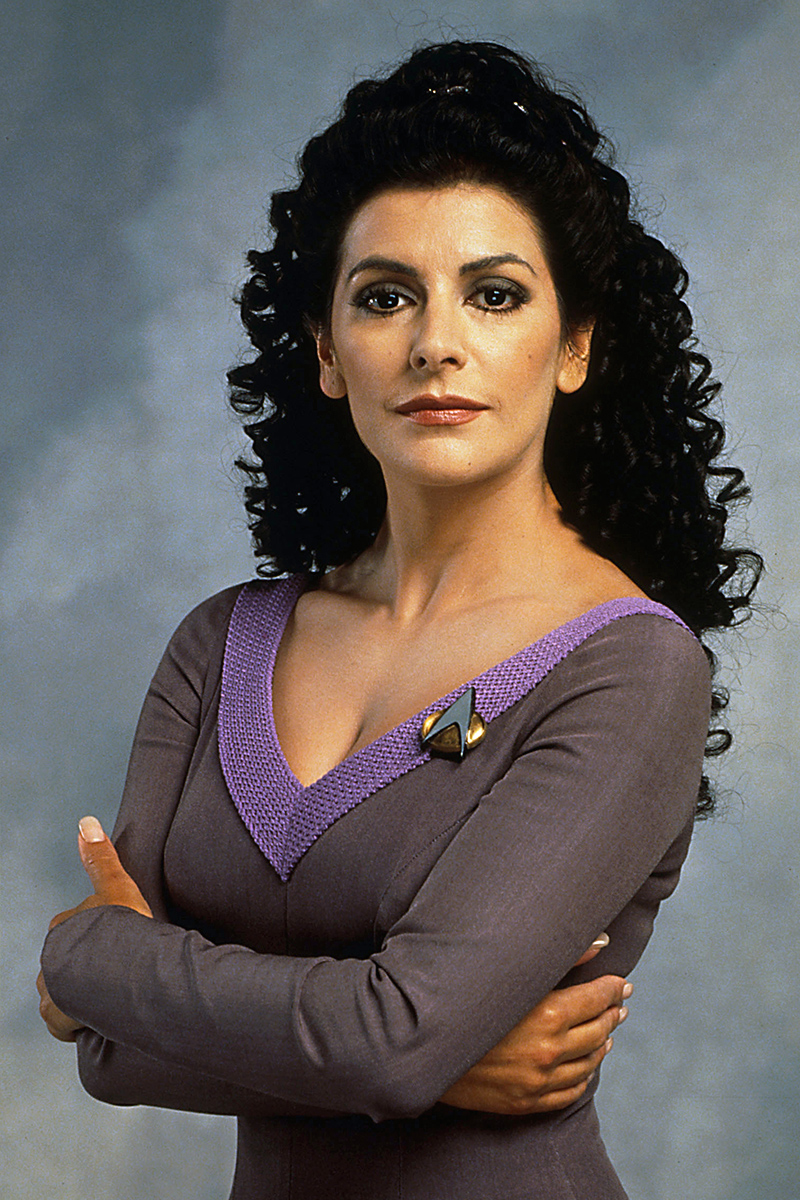
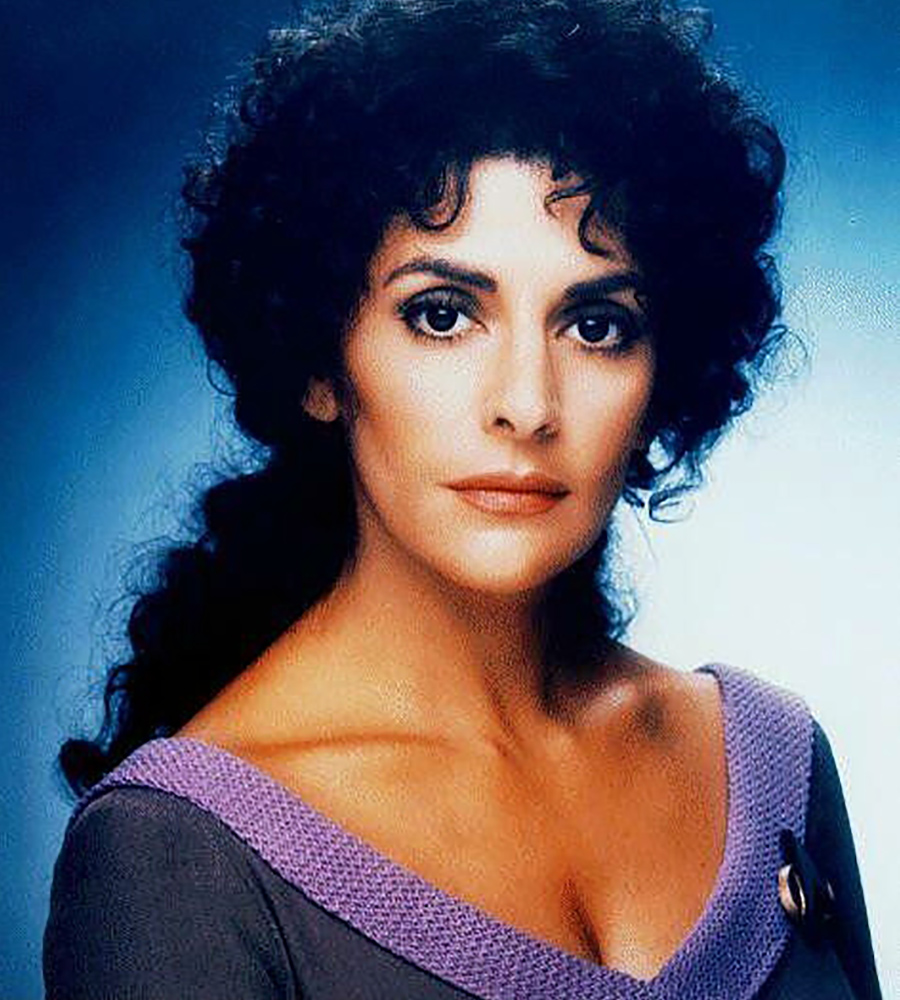
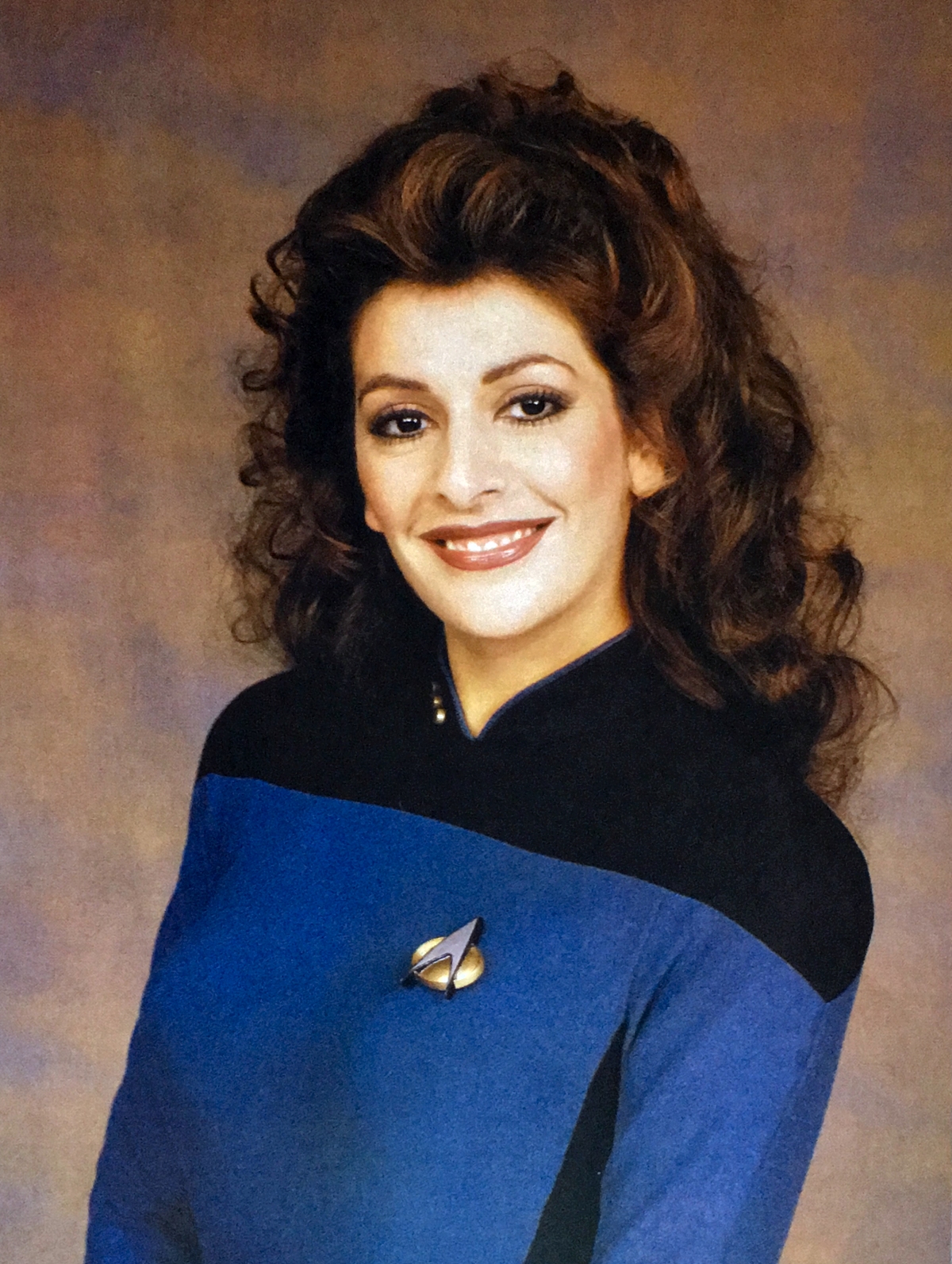
Non-threatening
In her 1988 interview with Starlog, Sirtis said the women of The Next Generation were getting a “pretty fair crack”.
The chief of security is a woman, the captain takes my advice very seriously and Dr Beverly Crusher is the only one who can declare the captain unfit.
Four seasons in, she was more critical, telling Cinefantastique in 1991:
The women on this show are very non-threatening. I don’t think it’s realistic. It’s not realistic for the twentieth century, so it’s definitively not realistic for the twenty-fourth century. Ever since Denise [Crosby] left the show, the two women that are left are both doctors in the caring professions. You don’t see women in power positions.
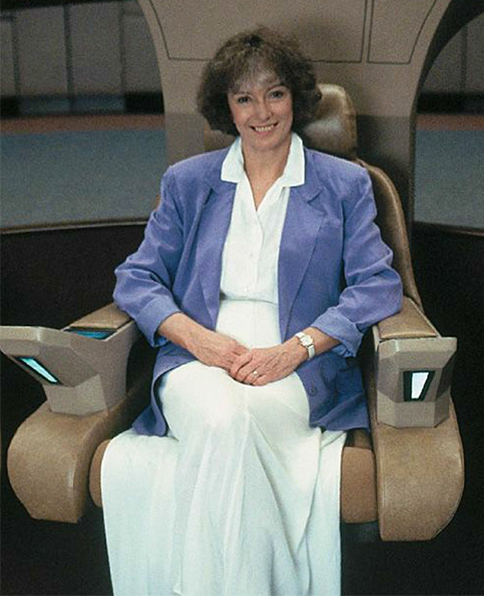
Jeri Taylor, who joined The Next Generation at the beginning of Season 4 and remained the only woman on its writing staff (Fontana had left at the end of Season 1), agreed, telling Cinefantastique in 1993:
They had been put in caretaker roles. It’s hard to find stories that break them out of that mold.
It didn’t help that some of the male writers didn’t see much use for a counselor at all.
Brannon Braga is quoted in The Fifty-Year Mission: The Next 25 Years as saying,
A therapist on a ship full of characters that supposedly had gone beyond human foibles and no longer succumbed to petty jealousy and anger?
Tracy Tormé, who also served as story editor during the first season, argued the character was too “soft” and “touchy-feely”. But then, Tormé, who wrote the episode “Conspiracy”, thought The Next Generation was too “timid” altogether and he left after two seasons.
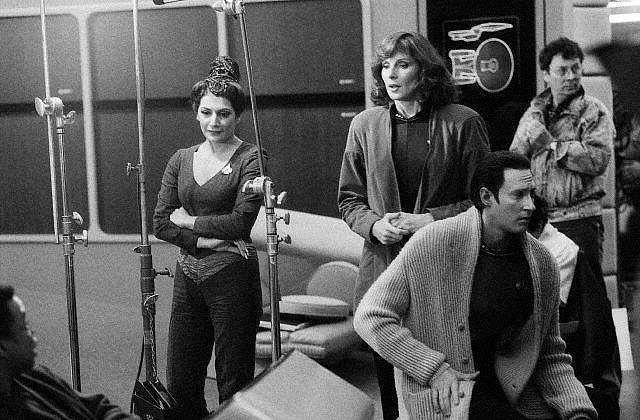
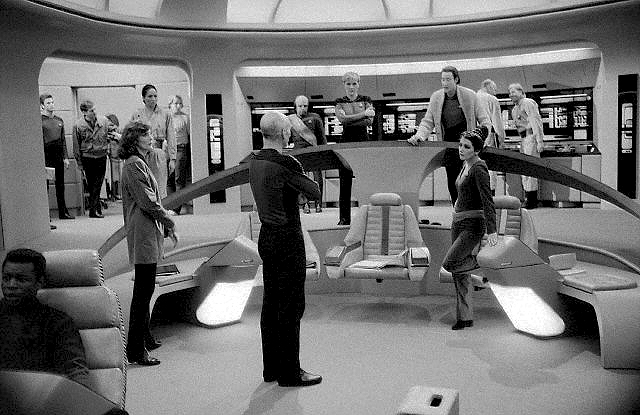

Writing Troi
In the beginning, Sirtis struggled with how much emotion to show, telling Star Trek: The Magazine years later:
I didn’t understand what I was doing. I had the impression that Troi was an open sore of emotions, but I wasn’t aware that you didn’t have to show emotion to get the message across.
The writers weren’t sure either.
In “Encounter at Farpoint”, Troi communicates with Riker telepathically, a skill she would later use only with her mother. Sirtis told Starlog the producers decided too much ability would be “too limiting” to the character.
So they changed the level of Troi’s powers. Now, when I experience something, it’s a very strong emotion and that frees my character up to have more substance and scope.
But it was seldom exploited. Sirtis told SFX for a special Star Trek edition released in 2013 that Troi was written out of several Season 1 episodes because her ability to sense feelings would have killed the drama. She feared she might even lose her job, but then Crosby quit and Gates McFadden was fired, leaving Sirtis the only woman of the first season to make it into the second.

Sirtis told Star Trek Monthly in 1997 that it wasn’t until the third season that Troi became more grounded. “She became less decorative and more interesting.” But there was still some way to go.
Michael Piller, who joined as a writer by then, confessed in a 1990 interview with Cinefantastique that he struggled with writing Troi:
The trouble with Troi is that because she’s an empath, you think she walks into a room and says, “I feel pain.”
He knew that was a cliché:
She is a total woman who has feelings of her own with a job to do on the Enterprise. She’s the captain’s most trusted confidant, valuable in dealing with strategic issues.
But his colleague Ronald D. Moore also had a hard time finding things for Troi to do:
It is difficult, because you run into a double trap of how much does she know and when. Especially when dealing with powerful aliens. It’s unfortunate, because the things she’s had, she’s been wonderful in.
Sirtis herself had no desire to get involved in writing, telling Cinefantastique,
My basic theory of acting is you learn your lines and try not to bump into the furniture.
She would meet the writers for lunch once or twice per season to talk through Troi’s development.
Taylor made a conscious effort to inject more life into the character, telling Cinefantastique in 1992:
She was underutilized, somewhat one-dimensional. She did one thing: she sensed things. The actress is just too good not to let her stretch herself. I tried to broaden her role.
In an attempt to strengthen Troi’s character in Season 4, the writers chose to develop an often-pitched story in which she loses her empathetic powers. This became “The Loss”.


“This basic idea has been pitched to us every season,” Piller told Cinefantastique in 1991.
Finally, because we needed a Troi show, we said, let’s do it here.
Author Sara Century writes for the official Star Trek website that the episode showed a tremendous amount of growth “by targeting and suspending the thing that Deanna relies on for everything — her intuition.”
By inhibiting her ability to empathize, the threat of the week showed us how the generally brave and calm Deanna deals without her own supreme inner harmony. The answer is, not great, but isn’t that more relatable?
“Man of the People” gave Sirtis another opportunity to act out of character. Troi becomes a receptacle for the negative emotions of a peace envoy and undergoes a dramatic metamorphosis.
“Face of the Enemy” (which was also directed by a woman, Gabrielle Beaumont) put her in a position where her empathic abilities weren’t relevant at all. Troi wakes up looking like a Romulan and discovers she must safely transport a defector to the Federation.
The writers had finally figured out Troi could do more than probe the intentions of the alien of the week. Toward the end of the series, Piller told Cinefantastique:
Marina is one of the great talents and nobody really knew it when this whole thing started. The more we give her to do, the more she seems capable of doing.
Romance
Troi’s brief and late-series romance with Worf confused and even upset some fans, but Century believes it was the better parts of both of their character arcs. Troi and Worf might appear to have little in common, but their relationship put an emphasis on their “substantial emotional common ground.”
Both are incredibly loyal, prideful and easily angered, but both are also deeply gentle spirits that struggle with violence on a profound and often unspoken level. Though he isn’t always forthcoming, Worf is easily one of the most emotional people on the crew. Troi’s light pushing of Worf to be more open, honest and communicative about his many feelings helped Worf. Meanwhile, his passion and sense of honor gave Troi the stable foundation she needed to express her interest in him.
The romance was short-lived, but Century argues it allowed viewers see the characters through a new lens.


Of course, the more permanent love interest in Troi’s life was Riker. After a few close encounters early on, the two settled into a friendship where they would often seek out each others’ counsel, notably when Riker was attracted to a member of an androgynous race who identified as female in “The Outcast”.
Sirtis told fans on the 1991 SeaTrek cruise that they should not expect the romance the blossom:
Forget about it! It’s not going to happen! Jonathan and I play a lot of stuff that ends up on the cutting room floor. We would like to see the characters have a relationship, but the producers want him to be “stud of the galaxy” to boff the “bimbo of the week”.
Taylor put it more diplomatically:
It’s not anything we have any interest in developing, because it leads you into constricting traps. We acknowledge that there was a relationship between Riker and Troi. They have a profound friendship. I don’t think you should close any avenue off in a series that may go on for many more years. We draw on that relationship for subtext.
It wasn’t until Star Trek: Insurrection that the characters were drawn back together by the rejuvenating influence of the Ba’ku planet. In early drafts, they merely flirted and kissed. It was at the studio’s suggestion that Piller, who wrote the script, developed the relationship more seriously.
In the next and final movie of The Next Generation, Nemesis, the couple got married.
Radical empathy

Looking back on her role in a 1995 interview with Star Trek: Communicator, Sirtis said Troi was always the “nicest person aboard the Enterprise” for her, “because, instead of being wacky and zany, she was always understanding and sympathetic toward people.”
Century argues this “radical empathy” was Troi’s strength. In a lot of fiction, she points out, women’s emotions devour and destroy them. Female empaths and telepaths are frequently portrayed as unstable and prone to losing control. “That’s never the case with Troi.” She “shows that people who are guided by their hearts actually have a bit of an edge in life.”
We live in a society that views compassion as a weakness, particularly feminine compassion. The message that to care is to give up your strength is instilled through media, culture, even in the mechanics of our very language. Allowing yourself to feel the world with one or two degrees less of a protective layer around your heart takes courage, and courage takes power. Like many highly sensitive people, Deanna Troi is regularly underestimated and her importance reduced. Through her patience and understanding, Troi insists that forcing yourself to view the world with empathy makes you a stronger person, not a weaker one.

